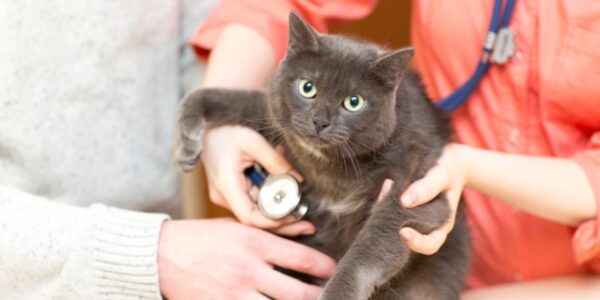
Puppy Health Problems
As a conscientious puppy parent, you do everything you can to set your puppy up for a long, happy and healthy life: you have them vaccinated to protect against devastating diseases like parvovirus, distemper and kennel cough; you treat them monthly to ensure they remain parasite free, and you make regular appointments at the vet to ensure their development is on track. Nonetheless, there are some common health problems unique to puppyhood which new dog owners should be aware of.
Tummy upsets
Healthy puppies are busy, curious little creatures, and these tendencies often lead them to try eating things they shouldn’t, which results in vomiting and/or diarrhoea. Common causes of this include abrupt diet changes, eating spoiled food (scrounged from an expedition in the kitchen bin), inedible objects (sticks, toys and shoelaces), rich food (human foods like dairy and processed meats) and gorging (eating too much too fast).
Most of these causes can be managed by slowly introducing new foods, keeping your puppy’s diet relatively simple (keeping the majority a premium quality puppy food), puppy proofing your home, whilst gorging can be minimised by adding obstacles to slow down the eating process. If your puppy vomits once but seems fine otherwise, then the best thing to do is let the digestive tract rest by not feeding them for a period of time (they should still have ready access to water as vomiting causes dehydration in puppies). The duration of fasting will vary depending on your puppies age (can range from a few hours to 24) – please consult with your vet on this. However, if your puppy is vomiting more than this, there is blood in their vomit/diarrhoea, if the signs last more than 24 hours or if there are other symptoms such as anorexia (not wanting to eat or drink), a bloated or painful abdomen, lack of coordination or lethargy, take them to the vet.
Hernias
Sometimes, puppies are born with hernias where abdominal organs or fatty tissue protrude through a weakened spot in the connective tissue. Umbilical (where the foetus was attached to its mother’s placenta in utero), inguinal (in the groin) and diaphragmatic (the sheet of muscle separating the chest from the abdomen) are the most common types of hernias. Blunt force trauma can also cause this condition. A small hernia usually feels like a small squishy blob in the belly button region or groin. In more serious cases, a larger mass can be felt and may be accompanied by symptoms like pain, vomiting, loss of appetite, irregular heartbeat and breathing issues. Your vet will diagnose a hernia through a physical exam and for small, uncomplicated cases, they will probably recommend the issue be treated at the same time your puppy is de-sexed. If a hernia is more complicated and involves organs, then immediate surgery may be required.
Hypoglycaemia (low blood sugar)
This condition can occur in toy dog breed puppies up to 6 months of age when the puppy has gone too long without eating. Symptoms include sleepiness, weakness, lack of coordination and lack of appetite which can then develop into seizures and loss of consciousness. To prevent this issue, toy breed puppies should be fed three to four small meals a day. Because they have such small stomachs and can only consume a limited volume of food at a time, toy breed puppies will often need food that is higher in calories, fats and proteins. It’s best to consult with your vet to find the right diet for your puppy’s unique nutritional needs.
Remember, the care you take of your puppy whilst they are young sets up their health for life. If you are at all concerned about your puppy’s health or they are displaying symptoms you are unsure about, the team at Vets in Endeavour Hills are here to help. Please call us on (03) 9700 2264 and an experienced staff member will be able to advise you on the right course of action.



